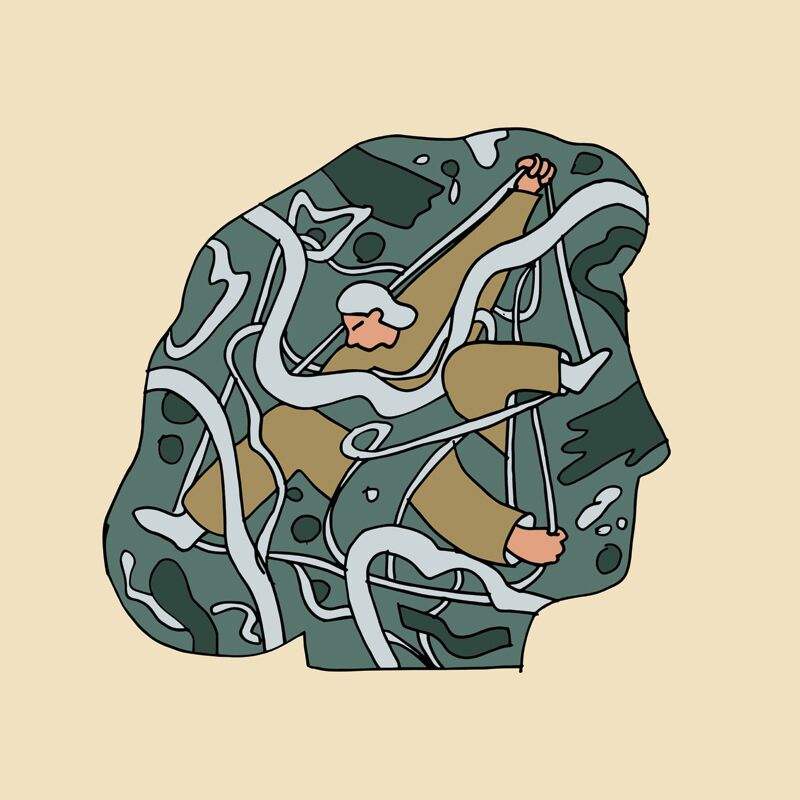The stigma around mental illness needs to end, and the conversations need to start
Full disclosure: I suffer from obsessive compulsive disorder (OCD). If I’m not medicated, it will take me 20 minutes or more just to get out of my apartment in the morning. I will check to make sure the back door is locked several times over. I will check repeatedly that the stove and oven are off, despite having eaten cold cereal for breakfast.
Then I need to verify that nothing near the heaters could start a fire, even in the summer when I know the heaters are off. Finally, and most importantly, if I cannot see the cat when I close the front door to leave, I assume that he has escaped and is lost somewhere outside. All the while, I keep my right hand on the pocket where my keys go to make sure I haven’t left them inside (and won’t be subsequently locked out).
I know a lot of people have morning routines, and they may even have similar rituals themselves. However, in my daily life, I must do these things. It’s not just a habit—it’s something that releases a pressure inside me and satisfies a seemingly physical need. Now, keep in mind, this is just my attempt to leave home. None of this says anything of the day-long struggle to keep everything and everyone doing what I need them to do in a way that appeases these compulsions. That is the most exhausting part.
This is my everyday experience if I am not medicated. It is a pain in the ass, but my symptoms are mild compared to many others who suffer from OCD. I take medication for these symptoms, and I am not ashamed of that because they tell my brain that many of these silly rituals are unnecessary. Therefore, medication gives me the option to focus on what’s really important, like going to school and doing reasonably well. So, am I crazy? Am I a lunatic not worthy of anything more than a life of seclusion and shame?
I’m not embarrassed about having OCD, nor should I be. Just as someone with a physical disability shouldn’t be embarrassed either. This is how we need to start thinking about mental illness. The stigma of “weakness” or “lunacy” are old and outdated, just as the terms “invalid” or “cripple” are. The time has come to talk about mental illness in a constructive manner. And so, I am putting myself out there to say that I am not crazy—my brain just works in a different capacity than others, and I will not apologize for that. I am not responsible for the position I have been put in, yet, I’m responsible for managing it.
So, why are some people scared to talk about mental illness? Perhaps it’s because they cannot see it. Or perhaps they simply fear the unknown. Well, I’ve got news for you: it is visible and we can see it all around us. Unfortunately, though, it will remain unknown until we talk about it.
You know some of those folks living on our city streets, right near Concordia’s downtown campus, talking to garbage bins and yelling at shadows? That’s mental illness. And until we educate ourselves, they will continue to be marginalized by society. According to the Mental Health Commission of Canada, nearly 40 per cent of the homeless population in Montreal suffer from various forms of severe mental illness. They are not evil, they are not crazy, nor are they possessed (by anything other than the socially-constructed prejudices of others). They are examples of what happens when people fear you or don’t understand you.
Perhaps I could be one of them. Luckily, I have a network of understanding people around me and access to healthcare that keeps me in school and possibly off the streets. This is not afforded to everyone, but it needs to be. You can help just by talking about it. I want to talk about this, and I want to talk about it now. My hope is that this will get things started.
If you or someone you know is suffering from a mental illness, please seek help. It is worth the effort. You can contact the Canadian Mental Health Association, Action on Mental Illness (AMI) Quebec or Mouvement Santé Mentale Québec for help or to get more information.
Graphic by Zeze Le Lin





The current practice of giving various labels to “mental illnesses” contributes to stigma in a big way. We need to remember that these labels (i.e., labels originating from DSM classifications) are given to patients in the absence of any brain differences between normal people and people who are considered to be “mentally ill.” The current practice of labeling only benefits pharmaceutical companies that have an excuse to come up with various pills for numerous “disorders.” Receiving a label also increases the level of stress in an individual, and referring to these mental issues as “long-term condition” (which often happens today in psychiatric practice) also takes away people’s hope of getting better. Check out the article titled “House on Fire: A ‘Mental Health Literacy’ Parable” (find on google).
—-Mental illness is as serious as physical
illness
Actually, editors, the more we take an unbiased look at
the illnesses we out of long bad habit call “mental”, the more we understand they
are not “mental”, i.e., inventions of the mind.
Harold A. Maio, retired mental health
editor
Thank you for your input Mr Maio, I researched your name and read your piece published in The Guardian on 7 November 2011.
I also appreciate your point of view and agree that we must, as a society, stop making “us’s” and “them’s”.
Thank you for looking further into the issue.